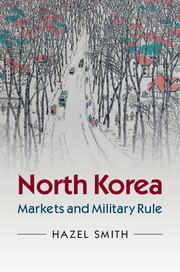Introduction: North Korea: politics, economy and society
Published online by Cambridge University Press: 05 May 2015
Summary
North Korea is mad, bad and sad. The government is uniquely evil, malevolent and belligerent. The North Koreans are planning to fire missiles armed with nuclear bombs on Alaska. North Koreans are politically indoctrinated robots whose highest ambition is for their children to serve the fatherland in a life of endless privation and unsmiling devotion to a God-like figure in the person of the state leader, Chairman of the National Defence Commission, Kim Jong Un.
The conception of the Democratic People's Republic ofKorea (DPRK – more commonly known asNorthKorea) as so far off the planet that itmight as well be in outer space prevails in almost any report aboutNorthKorea in the so-called quality press fromround the world. This is despite the fact that many of the claims about North Korea are as bizarre and illogical as the picture they are supposed to portray. There are over 24 million North Koreans – do they really all think the same? The dominance of the ‘conventional wisdom' on North Korea drowns other perspectives to the extent that it would be surprising if the average, reasonably well-informed member of the public did not automatically view North Korea as alien and inexplicable.
Yet North Korea is far from unique and not a very difficult country to explain. North Korea has an authoritarian government that rules over an economically struggling society. North Korea is not a pleasant society to live in if you are poor, old, ill-connected, religious and/or a political dissident. Should North Koreans be brave enough or foolish enough to engage in political criticism of the government, they face brutal treatment, including imprisonment and internal exile.
North Korea, like many other countries in the early twenty-first century, is undergoing a transition from socialism to capitalism. This fitful and somewhat reluctant process nevertheless represents a very profound transformation of society. The country's economy is irreversibly marketised even though the government's political philosophy and rhetoric hangs on to some vestiges of its foundational socialist rhetoric.
- Type
- Chapter
- Information
- North KoreaMarkets and Military Rule, pp. 1 - 16Publisher: Cambridge University PressPrint publication year: 2015



